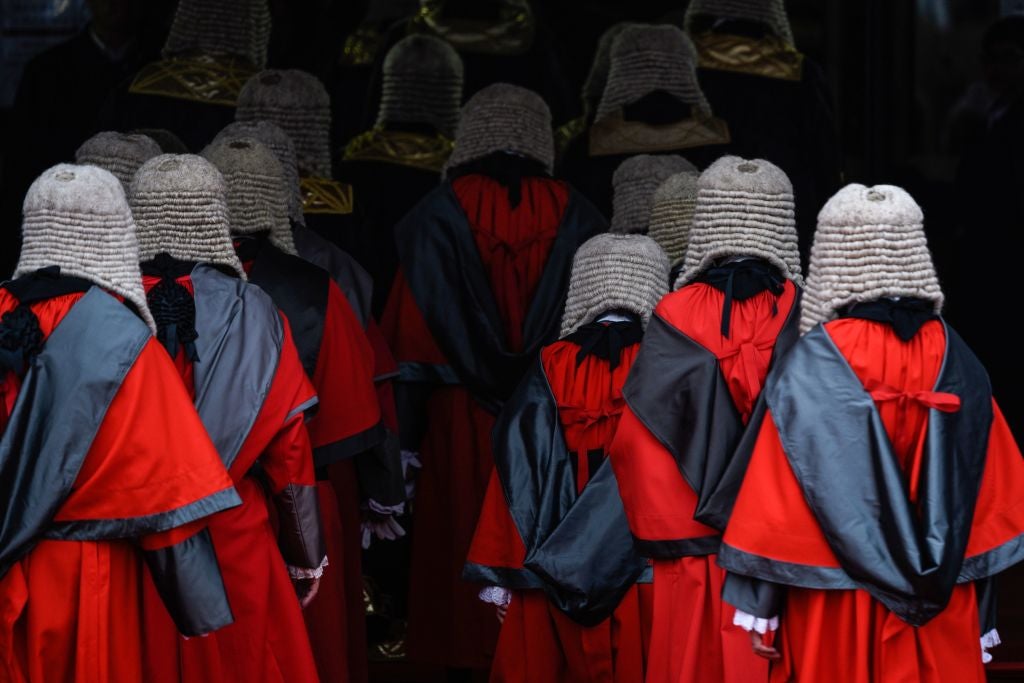
Judicial independence has come under attack in 45 countries in recent years, according to a new report by global risk and strategic consultancy Verisk Maplecroft.
Major foreign direct investment hubs are among the countries that have seen the most severe backsliding on judicial independence, including China, Poland, Switzerland and the Czech Republic.
The Judicial Independence Index, published as part of Verisk Maplecroft’s Human Rights Outlook report, assesses each country’s separation of powers, systems for appointing judges and political interference in court rulings.
“For companies operating in ‘high-risk' countries this could mean a lack of recourse in the event of contract renegotiations or the expropriation of property, or even unfair legal sanctions from host governments imposed to punish perceived slights or to achieve geopolitical aims,” said Capucine May, the author of the report.
“It also undermines the protection of human rights by enabling states to target political opposition groups, activists and journalists with legal penalties.”
Risk rises in China on judicial independence
Since 2017, China has risen from the 29th highest-risk jurisdiction to number three, overtaking Iran and sitting behind only North Korea and Eritrea. Judicial independence has been “consistently ground down since a 2018 constitutional amendment that saw the Chinese Communist Party strengthen its already tight grip on the judiciary”, the report notes.
“Although the Chinese constitution still technically mandates that the courts should be independent, judges are expected to align with and submit to the party’s dictates.”
In Europe, the report suggests, the backsliding observed has more often been the result of interference designed to protect politically important business interests.
For instance, judicial independence in Switzerland was severely challenged in 2019, when the Swiss People’s Party threatened to withdraw its support for the re-election of supreme court judge Yves Donzallaz after he voted to release UBS data to French authorities investigating a tax evasion case.
Donzallaz was ultimately re-elected, but the case underscored the fragility of judicial independence in a country where parliamentarians elect top justices.
In the Czech Republic, meanwhile, judicial independence was undermined by Prime Minister Andrej Babis’s 2019 decision to dismiss his justice minister shortly after police launched a fraud investigation into his activities.
Poland has seen the largest decline of any country since 2017, moving from 118th to 61st in the rankings and overtaking Hungary as the worst-performing EU member state. The report attributes this decline to reforms introduced by the ruling Law and Justice Party since 2018, reforms that have politicised the appointment and dismissal of judges. The changes have been sharply criticised by the European Commission and the European Court of Justice (ECJ), but the Polish government has so far refused to back down.
The ECJ has since moved to levy fines of €1m ($1.1m) per day on the Polish government, fines it justifies as “necessary in order to avoid serious and irreparable harm to the legal order of the EU and to the values on which that union is founded, in particular that of the rule of law."
On this issue, May said: “As judicial independence comes under threat, so too does the predictable freedoms of those who are not aligned with the stance of the state, including opposition activists, reporters, political figures and judges.
“Companies on the wrong side of the political or geopolitical fence in ‘high-risk' countries will certainly be at a disadvantage, while deteriorating human rights conditions pose real risks to the operating environment and the environmental, social and corporate governance profiles of companies deemed to be working alongside the worst-performing governments.”



